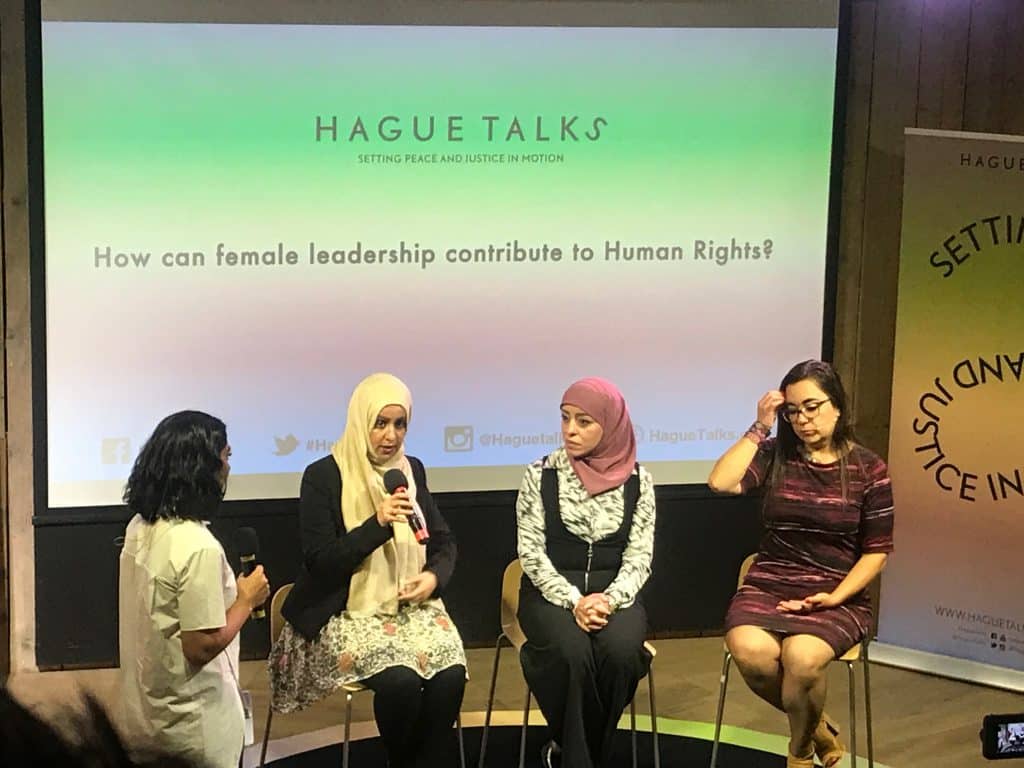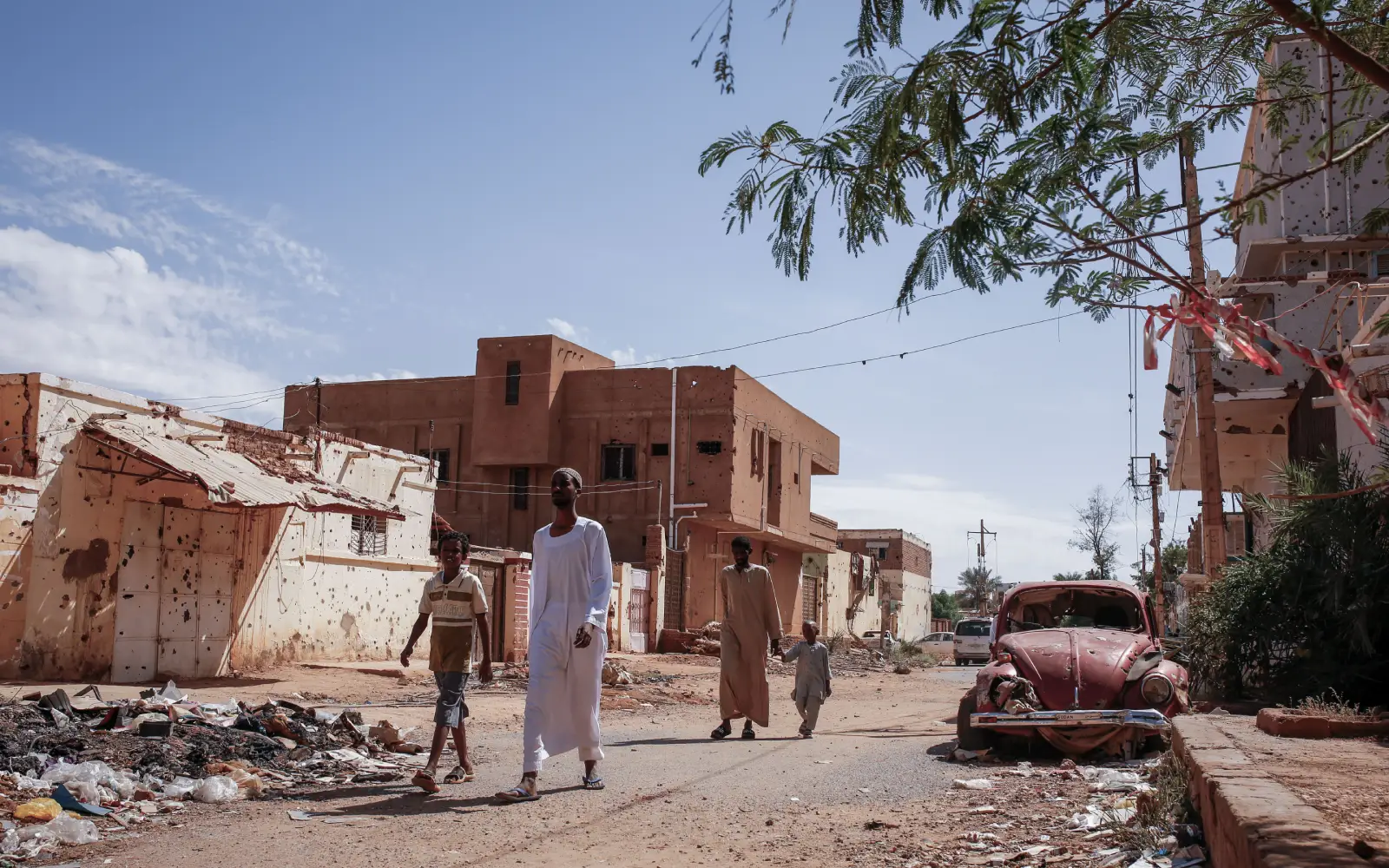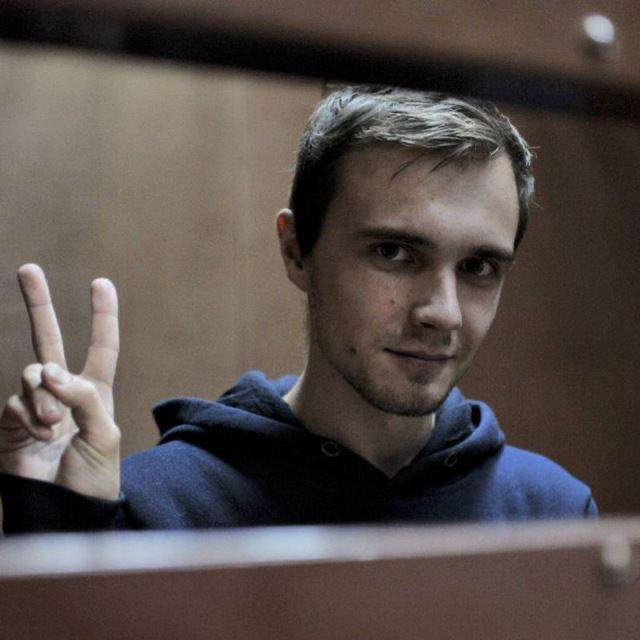We can't be all that we can be, but we can become what we want to be." This was one of the striking statements at Hague Talks on women's leadership and human rights on Wednesday 18 September. Women are gaining attention and a more important role in improving human rights both in Europe and in the Middle East and North Africa, and this event is a result of that. On the Wednesday evening, led by moderator Sahar Shirzad, three women from the MENA (Middle East and North Africa) region spoke consecutively with personal stories about their experiences in improving human rights. Concrete answers on how women's leadership contributes to human rights improvement were not given, instead the three women told their (life) stories.
Three special stories
"Yemen isn't forgotten, it's ignored" with this, Radhya Al-Mutawakel president and co-founder of the Yemeni Mwatana Organisation for Human Rights kicked off the evening. Mwatana focuses on documentation and publication of violence, advocacy and where possible providing legal support to victims. At a young age, she discovered the power of education, documentation and International Humanitarian Law which now enables her to collect and publish relevant information.
Hama Zeidan, director of Advocacy and legal advice Centre (ALAC) from Palestine began her story by debunking what she saw as a number of misconceptions. "Palestine is occupied" and that should not be forgotten, Zeidan said. With ALAC, she aims to create the democratic state of Palestine where transparency, integrity and accountability are central. Essential is the fight against corruption, she believes, which cripples a country and affects women more than men. Beating corruption is a long-term goal, which Zeidan says starts with awareness creation, online publication of documents and ultimately dialogue with the Palestinian government.
"It's not a fight against men, it's a fight against the patriarchal system" said Ghida Anani from Lebanon. Ghida is founder and director of the ABAAD- Resource Centre for Gender Equality. This NGO strives for equal rights and the reduction and elimination of violence against women. Ghida worked as a counsellor, but soon discovered that there were problems within the family domain that she was not getting resolved. So she founded ABAAD Resource Centre, to help women and become more policy-oriented. It has since grown tremendously and now has 13 safe spaces, shelters and a rehabilitation centre where men are treated for their violent behaviour. An impressive campaign by Ghida is the #Undress552 in 2016. This hashtag referred to the abolition of Law 522 in which rapists were acquitted if they married their victims.
Three different stories, yet not so different
Radhya, Hama and Ghida are three completely different women from different countries, but also have a lot in common. They do not see themselves as leaders, but emphasise the importance of cooperation between men and women. Also, all three women started on a very small scale, and their organisations have grown very quickly. This also brings problems and obstacles. Loneliness, difficulty balancing work and social life and loss of privacy are some examples of the invisible costs of this work. Ghida even explains that she does this not because she wants to, but because she has to. "I am a person who doesn't believe that the word impossible exists because the word itself is a combination of I am possible. It doesn't exist if there is a will, if there is power and passion". This is the clear message that these three inspiring women gave the audience.
Radhya, Hama and Ghida have contributed to improving the political environment and human rights in the MENA region with their willpower and perseverance. However, for many women, it is difficult to turn willpower and passion into concrete goals especially due to the numerous barriers they face. Many women lack not ambition but skills, which is why (political) training is important. Foundation Max van der Stoel is therefore involved in the project 'Get Involved! Women Empowerment in Morocco and Benin' whose aim is to get young women in Morocco and Benin more involved in (national) politics and to convince current political leaders of the necessity and usefulness of their participation. To this end, FMS organises women's trainings in Morocco that consist of two types of activities. You can read more about this at Foundationmaxvanderstoel.co.uk





